The Lost City of Atlantis is one of the most enduring legends in Western history. First mentioned by the ancient Greek philosopher Plato around 360 BCE, Atlantis has captured the imagination of people for centuries. According to Plato, Atlantis was a powerful, advanced civilization that mysteriously disappeared into the sea. Over time, the story has evolved into a myth, but its allure remains strong, sparking debates about whether Atlantis was a real place or a mere allegory.
The Origin of the Atlantis Legend
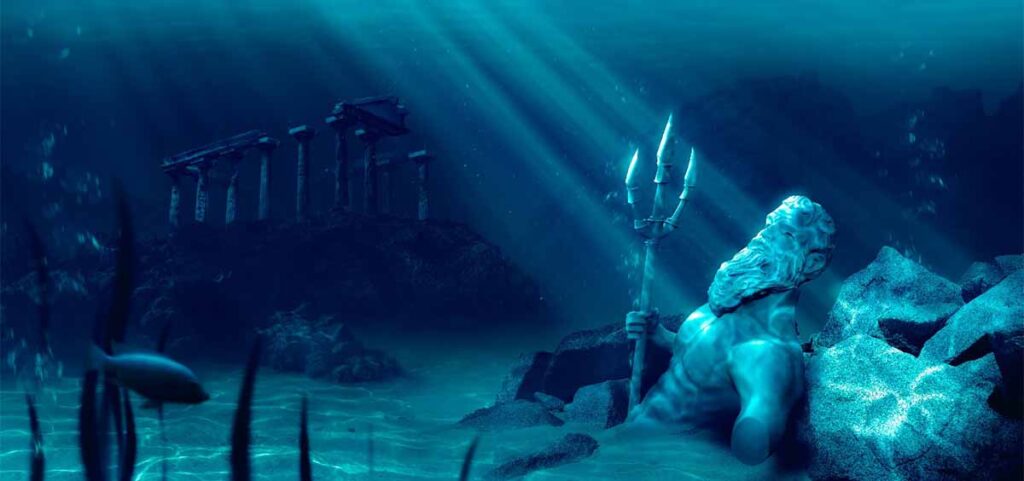
The story of Atlantis is first introduced in Plato’s dialogues Timaeus and Critias, written in the 4th century BCE. According to Plato, Atlantis was a large island located beyond the “Pillars of Hercules” (what we now call the Strait of Gibraltar). The island was home to a prosperous civilization with advanced technology, a rich culture, and impressive architectural feats. The Atlantes were said to have great naval power and a highly organized society, ruled by kings who descended from the gods.
However, Plato’s tale takes a tragic turn. According to his account, the people of Atlantis grew corrupt and greedy, angering the gods. As punishment, Atlantis was supposedly struck by a series of cataclysmic events, including earthquakes and floods, which caused the island to sink into the ocean, disappearing without a trace.
Plato’s account is vivid but brief. Over time, it became clear that his story of Atlantis might have been more than just a historical account. Some scholars believe that it may have been a cautionary tale, intended to illustrate the dangers of hubris and the fall of powerful civilizations.
Was Atlantis real ?
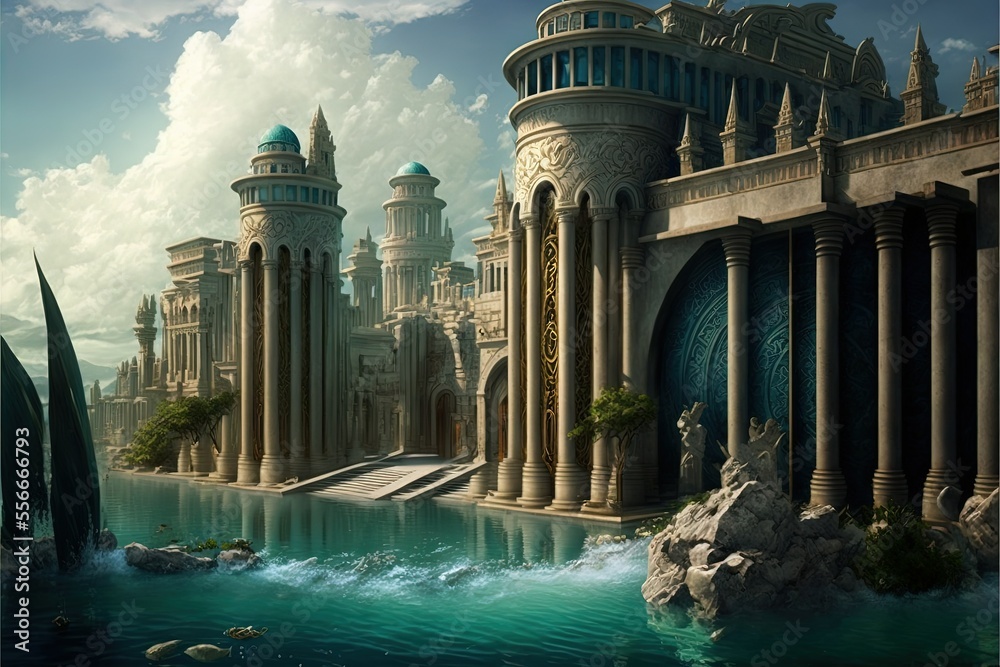
The question of whether Atlantis was a real place or a fictional story has fascinated historians, archaeologists, and explorers for centuries. Several theories have emerged, each proposing a different explanation of the legend of Atlantis.
Plato’s Allegory:
Some scholars argue that Atlantis was never intended to be a literal place but rather an allegory. Plato may have used the story of Atlantis to illustrate his philosophical ideas about the dangers of pride and materialism, the corrupting influence of power, and the eventual fall of great civilizations. According to this interpretation, the story was meant to serve as a moral lesson rather than a historical account.
Theories of a Real Atlantis:
Despite the allegorical view, many believe Atlantis may have been based on a real civilization. Over the years, several theories have emerged about where Atlantis could have been located, and whether it was an actual historical place.
The Mediterranean Theory
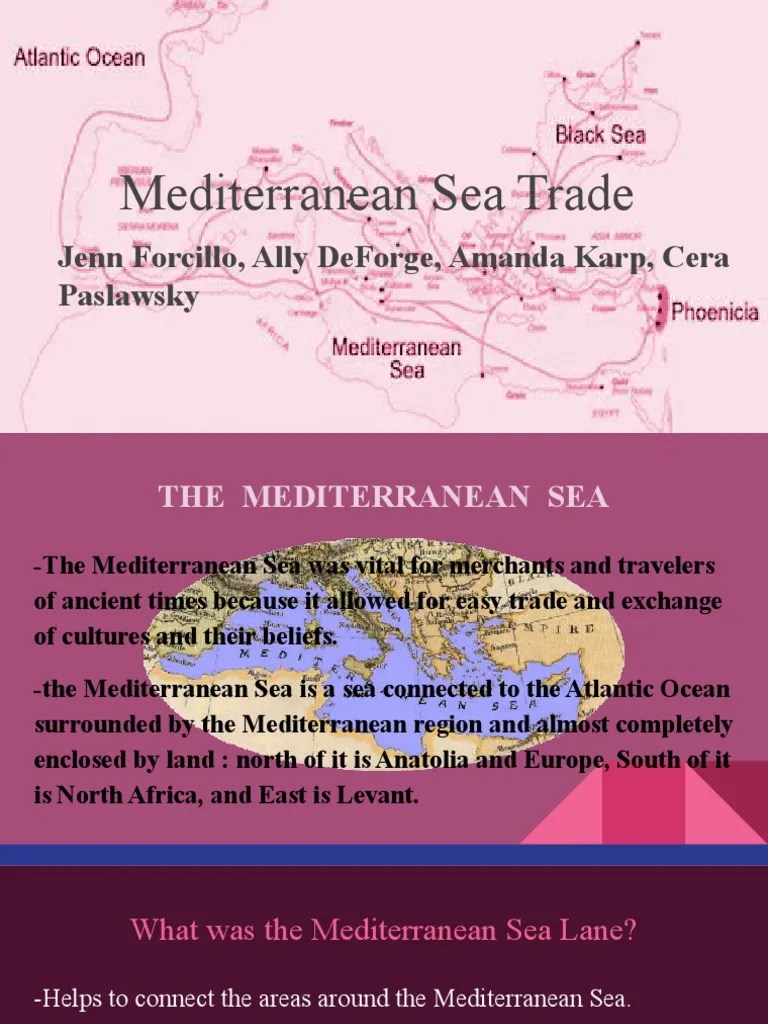
Many theorists believe that Atlantis was located somewhere in the Mediterranean Sea. The most popular theory is that Atlantis was the Minoan civilization, which flourished on the island of Crete around 1450 BCE. The Minoans were an advanced culture known for their palaces, art, and naval power. In 1450 BCE, the Minoans were struck by a massive volcanic eruption on the nearby island of Thera (modern-day Santorini), which caused widespread destruction and may have led to the collapse of their civilization. Some have suggested that this event could have inspired Plato’s story of Atlantis.
The Atlantic Ocean Theory:
The most famous theory of Atlantis’ location is that the lost city lay in the middle of the Atlantic Ocean. Proponents of this idea point to the fact that the ancient Greeks believed the Atlantic Ocean was home to a large, powerful civilization. Some have speculated that Atlantis may have been located in the Azores or the Canary Islands, which lie in the Atlantic, and that these regions could have been the remnants of a once-thriving civilization that sank into the sea due to a natural disaster.
The Caribbean Theory:
Another theory places Atlantis in the Caribbean Sea, suggesting that the island of Bimini in the Bahamas could be the site of the lost city. In the 1960s, underwater structures were discovered near Bimini, which some have claimed to resemble the remains of a city. These structures, known as the “Bimini Road,” are natural formations, but they have fueled speculations about the existence of Atlantis in this region.
The Antarctica Theory:
Some fringe theorists have even proposed that Atlantis was located in Antarctica. This theory is based on the idea that the Earth’s climate has changed drastically over millennia, and that Antarctica may have been a warm, habitable landmass in ancient times. However, there is no scientific evidence to support this theory.
The Myths of Atlantis in Ancient Texts:
There are other ancient myths that may have contributed to the creation of the Atlantis story. For example, some scholars suggest that the legend of Atlantis was inspired by stories of ancient civilizations that sank into the sea due to natural disasters, such as the destruction of the city of Tartessos in southern Spain. Additionally, the myth of Atlantis bears similarities to flood myths found in other ancient cultures, including the biblical story of Noah’s Ark, which speaks of a great flood that wiped out civilization.
Atlantis in Modern Culture
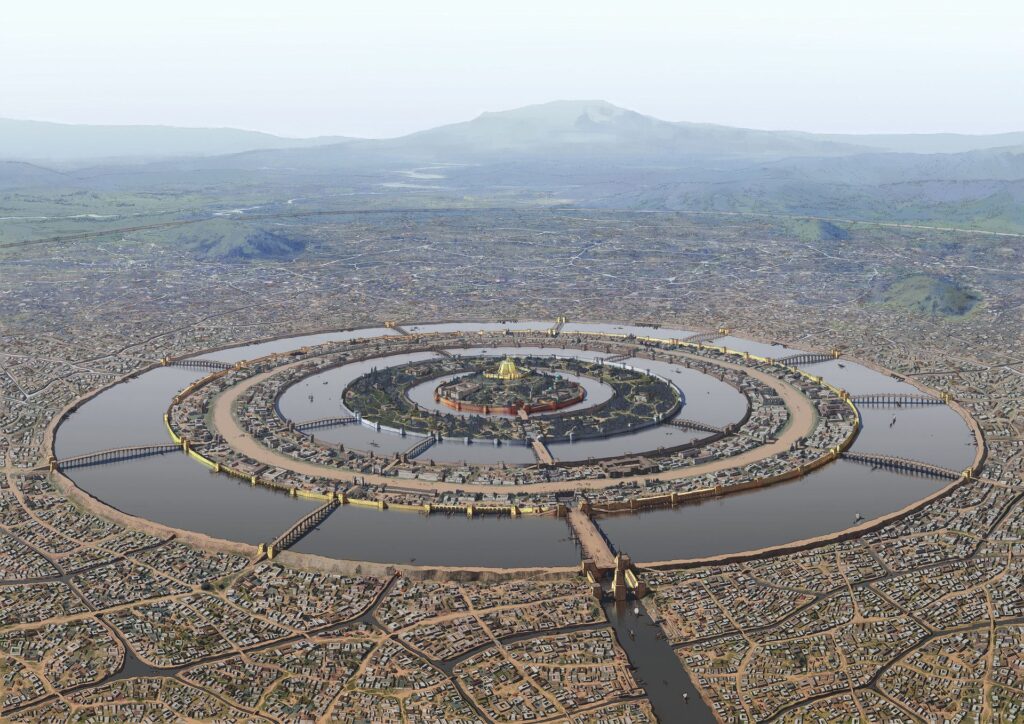
Regardless of its historical accuracy, the legend of Atlantis has had a profound impact on popular culture. Since the 19th century, stories of lost civilizations, secret knowledge, and ancient technologies have been the subject of novels, films, and television shows.
Literature:
Authors like Edgar Cayce, who claimed to be able to channel the “Akashic records” (a supposed collection of all human experiences), suggested that the inhabitants of Atlantis possessed advanced technologies and mystical knowledge. In modern literature, authors such as H.P. Lovecraft and others have drawn on the myth of Atlantis to create tales of lost ancient knowledge, secret societies, and hidden realms.
Film and Television:
Atlantis is a popular subject in films and television, from Disney’s Atlantis: The Lost Empire (2001) to Stargate Atlantis, a science fiction TV series that imagines the lost city as an ancient, technologically advanced civilization in the stars. These modern portrayals often combine elements of fantasy, adventure, and mystery, perpetuating the allure of the legend.
New Age beliefs:
Atlantis is also a central theme in New Age spirituality, where it is often depicted as a Utopian society whose knowledge and wisdom were far ahead of its time. According to some New Age beliefs, the ancient Atlantes left behind hidden wisdom that can be rediscovered in the present day, offering answers to spiritual and technological advancement.
The Ongoing Deate
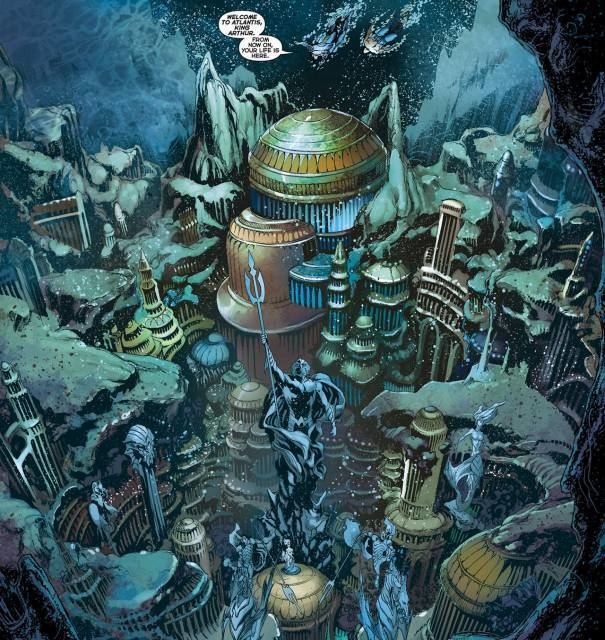
Despite the numerous theories, there is no definitive evidence that Atlantis existed. Archaeologists and historians continue to search for answers, but so far, no physical proof of Atlantis has been discovered. The debate remains unresolved, with some experts dismissing the idea of Atlantis as pure myth and others continuing to search for evidence of a real, ancient civilization.
The mystery of Atlantis continues to captivate the imagination, offering a tantalizing glimpse into the possibilities of a lost world that may have once existed, filled with advanced knowledge and untold secrets. Whether real or fictional, the legend of Atlantis endures as a symbol of human curiosity, the desire to explore the unknown, and the quest to uncover the mysteries of the past.
Atlantis: Real or Myth ?
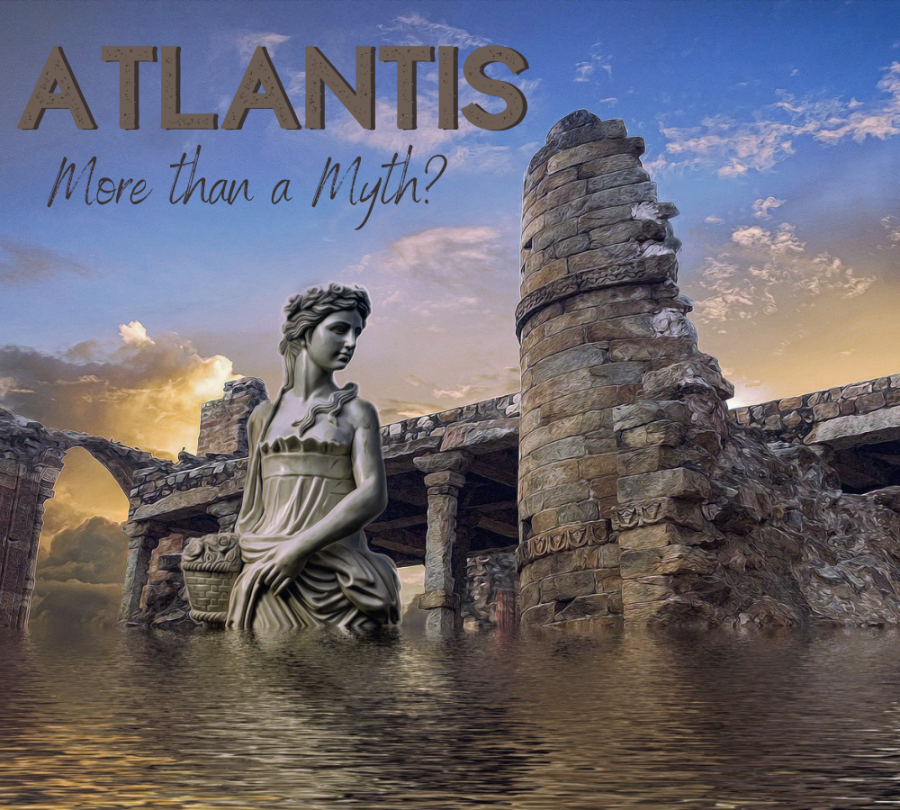
The question of whether Atlantis was real or merely a legend invented by Plato has fascinated humanity for millennia. The evidence remains inconclusive, and Atlantis may continue to exist as one of the greatest unsolved mysteries of history. Whether a moral allegory, a historical reality, or a mixture of both, the story of Atlantis has become an integral part of our cultural heritage, sparking our imagination and inspiring the exploration of lost civilizations, ancient technologies, and forgotten histories.


